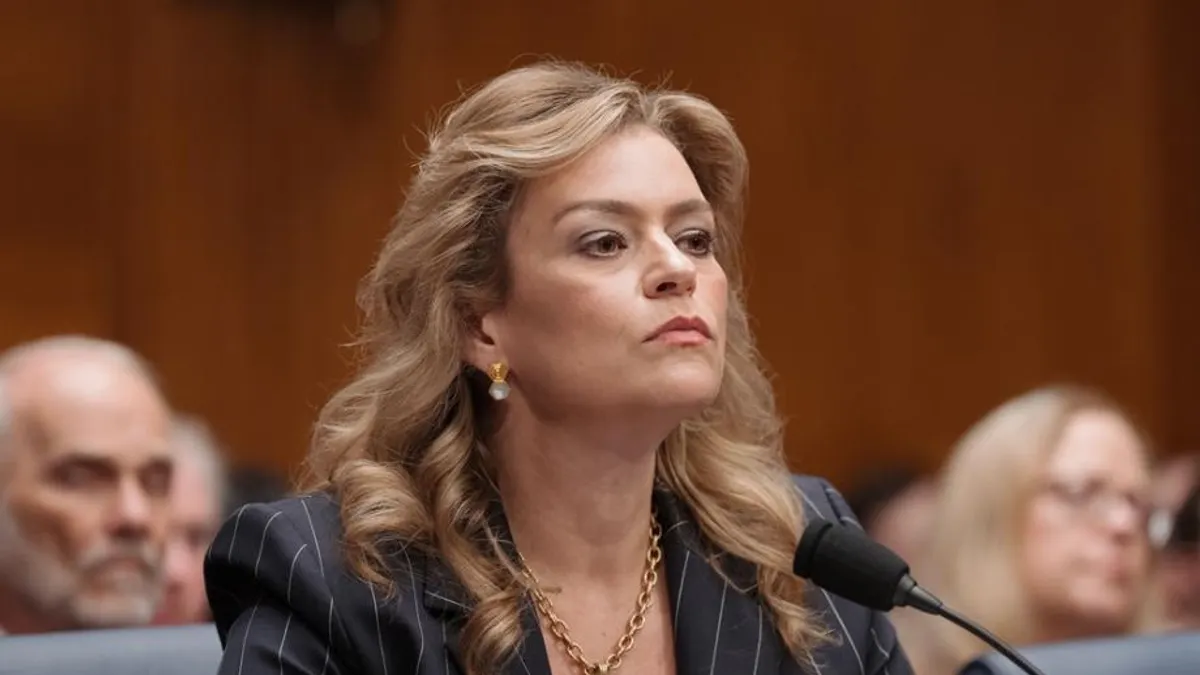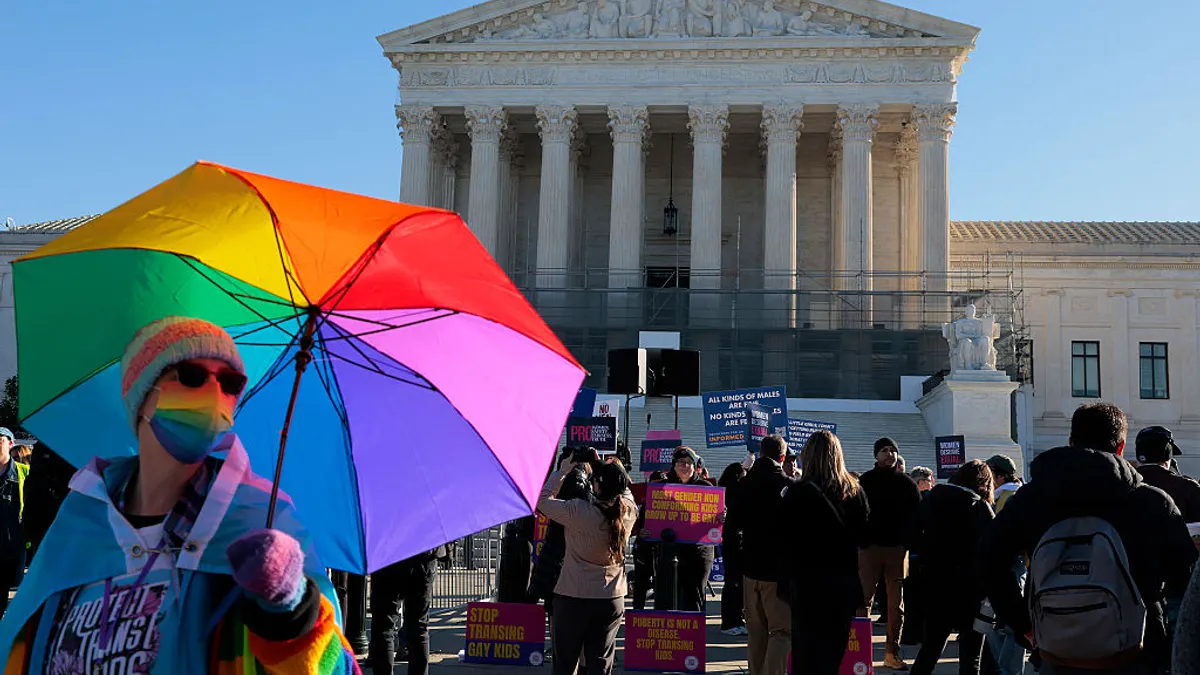In June, Ohio became the second state to regulate how colleges can use third-party vendors to help launch and operate their online degree programs.
Under a new law, both public and private colleges in Ohio must disclose on their websites for their online programs when they are using vendors to help run those offerings. Staff who work for these vendors, known as online program managers, must also identify themselves when talking to students. And it requires colleges to report OPM contracts annually to the state’s higher education chancellor.
The law, part of a larger state budget bill, additionally prohibits OPMs from making decisions about or disbursing student financial aid.
“Ohio's law is a step in the right direction,” said Amber Villalobos, a fellow at The Century Foundation, a left-leaning think tank. “It's great to see transparency laws because students will know who's running their program, who's teaching their programs.”
The new law is the latest sign that states may take on a greater role in regulating OPM contracts, heeding calls by consumer advocates for stronger government oversight.
However, Villalobos said Ohio lawmakers could have improved the legislation by barring colleges from entering agreements that give OPMs a cut of tuition revenue for each student they recruit into an online program. Minnesota, the first state to pass a law regulating OPMs in 2024, prohibited its public colleges from striking tuition-share deals with these companies if they provide marketing or recruiting services.
U.S. law bars colleges that receive federal funding from giving incentive-based compensation to companies that recruit students into their programs. However, in 2011, federal guidance created an exception for colleges that enter tuition-share agreements with OPMs for recruiting services — but only if they are part of a larger bundle of services, such as curricular design and help with clinical placements.
But these deals have led to OPMs using misleading recruitment and marketing practices to enroll students and fill seats, Villalobos said.
“When tuition-sharing is used for marketing or recruiting purposes we've seen issues like predatory recruitment,” she said.
OPMs under scrutiny
OPMs help colleges quickly set up and market online programs, said Phil Hill, an ed tech consultant. That’s important since launching a successful online program catering to nontraditional working adults can be challenging for colleges that typically enroll 18- to 24-year-olds, Hill said.
“It gives them a way to operate in the online space based on what students expect, but do it right away,” Hill said.
However, OPM contracts have been subject to lawsuits and federal scrutiny in recent years.
In Ohio, for instance, legislators passed the new state law following Eastern Gateway Community College’s closure in 2024 after it offered tuition-free online college programs with an OPM.
After the college began working with the for-profit company Student Resource Center, its enrollment soared from just 3,182 students in fall 2014 to 45,173 enrollees by the fall 2021, according to federal data. Former employees of the college accused the relationship of turning the college into an education mill, Inside Higher Ed reported at the time.
By early 2022, the rapid enrollment growth and the college’s relationship with the Student Resource Center had attracted the attention of the U.S. Department of Education.
The federal agency alleged that year that the college’s free college initiative illegally charged students with Pell Grants more than those without. In response, the Education Department placed the college on Heightened Cash Monitoring 2 status, which forced the institution to pay its students’ federal financial aid out of pocket before seeking reimbursement from the agency.
In 2023, Eastern Gateway reached a deal with the Education Department to end its free college program. Its board of trustees voted to shutter the institution the following year.
Ohio likely had “the worst example of an OPM contract harming students, harming an institution of any state in the country,” said Hill. Legislators were “reacting to that situation and the collapse of that school.”
Colleges nationwide have also faced scrutiny over their OPM relationships.
In July, the California Institute of Technology settled a 2023 class-action lawsuit that alleged the institution misled students about its role in a cybersecurity boot camp program that was instead largely taught and administered by an OPM.
In 2023, the University of Southern California also winded down its partnership with an OPM on most online degrees they ran together. The move came after a 2023 class-action lawsuit accused USC of misrepresenting an online social work master’s degree program developed with the OPM as the same as its campus-based one.
In January, the Biden administration’s Education Department issued guidance informing colleges that they could lose access to federal financial aid or face penalties if OPMs misrepresent themselves to students. That includes OPM employees implying they work for colleges or representing a virtual program as equivalent to an institution’s campus-based version when they have material differences.
Pros and cons of Ohio’s law
Adam Kissel, a visiting fellow at The Heritage Foundation, a right-wing think tank, criticized Ohio’s new law on the conservative Minding the Campus website in June. Despite being watered-down after it was first introduced in the Ohio House, the bill essentially “required a warning label when a college had an OPM partnership,” Kissel wrote.
However, higher education experts said students will benefit from the disclosures and reporting standards in Ohio’s law.
A 2022 U.S. Government Accountability Office report found that at least 550 colleges worked with OPMs to support at least 2,900 education programs. However, the office couldn’t determine the exact number of OPM arrangements due to a lack of comprehensive data.
“Without any real tracking, any real reporting or accountability systems in place, I think that some states just don't know how large of a scale the OPMs may be operating at in their state,” said Villalobos. “In some cases, that may be a reason we don't see states taking action.”
Yet Stephanie Hall, a higher education policy expert, said the Ohio law could have been improved if it had banned institutions from paying companies that provide recruiting services on a commission basis, referring to tuition-share agreements.
“This practice has long been banned in the context of typical, on-campus admissions, but for some reason online students are not afforded the same consideration and protection,” Hall, a former senior director of higher ed policy at the liberal think tank Center for American Progress, said in an email.
Additionally, how Ohio enforces the law’s prohibitions on OPMs controlling or influencing financial aid decisions will be key, said Hall.
OPMs in some arrangements provide input on whether the program’s tuition price is competitive, which Hall argues influences pricing, she said.
Some colleges, through such contracts, also agree to offer promotions such as special scholarships or discounts, which the OPM markets or uses to persuade prospective students to enroll, Hall said.
The availability of financial aid including those scholarships and discounts, for example, is often discussed as OPMs field questions from prospective students about the program and its price on behalf of its college client, she said.
“These activities bring the OPM close enough to financial aid decisions to warrant oversight,” Hall said.
Many contracts between OPMs and colleges include a clause stating that the OPM is not a financial aid servicer — but those clauses are meaningless if regulators don’t verify them, Hall said.
The state’s higher education chancellor’s office should thoroughly review how OPMs are involved in pricing, discounts, scholarships and enrollment strategies, instead of just ensuring that such clauses are in their contracts, she said.
The reforms Hall and others are calling for have merit, said Hill. Transparency about contracts, particularly in public education, is a good thing, he said.
But Hill cautioned against characterizing all OPMs as predators.
“I would argue that without this model, a lot of nonprofit colleges and universities just wouldn’t be able to make an online offering that grows at all,” he said.




















